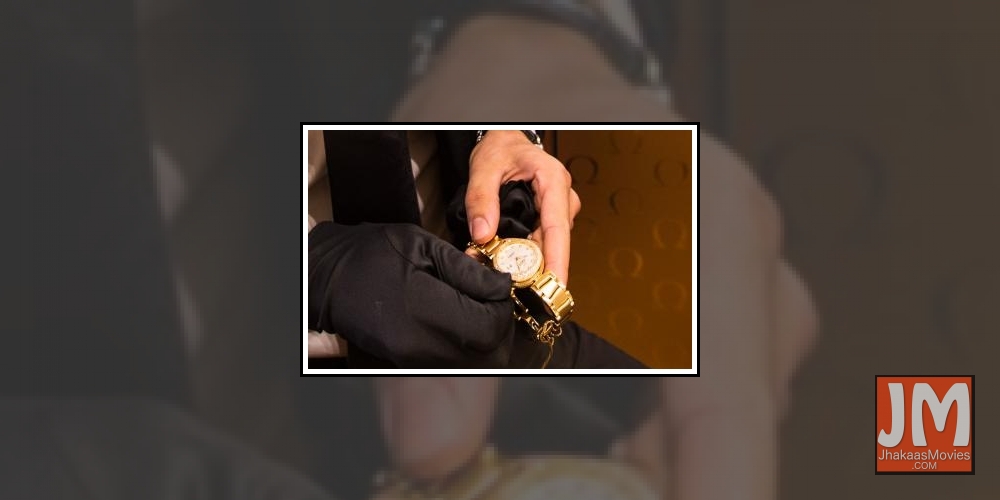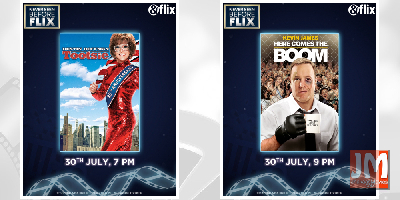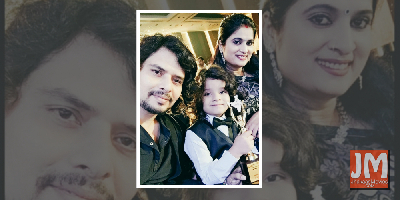 Aan Tiwari honoured with Best Child Actor award for Baal Shiv
Aan Tiwari honoured with Best Child Actor award for Baal Shiv Ghategi rahasymayi ghatnaye!
Ghategi rahasymayi ghatnaye! Amazon Prime Video unveils the 2021 Festive Line-up; brings a heady mix of Indian and International titles on the service
Amazon Prime Video unveils the 2021 Festive Line-up; brings a heady mix of Indian and International titles on the service Release: Music video of, Yeh Haalaath, from Mumbai Diaries 26-11
Release: Music video of, Yeh Haalaath, from Mumbai Diaries 26-11 Bhumi Pednekar feels she shares feel-good value with Akshay Kumar on screen
Bhumi Pednekar feels she shares feel-good value with Akshay Kumar on screen
Swiss watch brand H. Moser and Cie forays in India

New Delhi, Sep 16 (IANSlife) Celebrated for its precision and finesse, Swiss watchmaking is considered the industry standard. H. Moser and Cie, the Swiss brand with a mechanical watch-making tradition that goes back almost two centuries, recently forayed into the Indian market. CEO Edouard Meylan reveals what makes H. Moser and Cie so unique and why the brand is sticking to "beautiful, traditional watches" when smart watches is the trend.
Founded by watchmaker Heinrich Moser in 1828, Moser has a connect as much in the past as in the present and the future. In the news for having engineered the ‘Perpetual Calendar' watch -- a benchmark timepiece manually hardwired to show not just time but also days, months and years, the brand prides itself on its legacy.
"Perpetual Calendar is one of the most incredible complications. For me, it's like a computer on the wrist. It's a watch which knows what day of the month it is, and for us, it is important to master that. I want every watch to look simple, user friendly, easy-to-set and easy-to-read. And Perpetual Calendar is a very good example of all that," Meylan told IANSlife in an exclusive interview.
"To develop a movement like this, it took our engineers more than five years. Today we have a capacity of producing 80 pieces per year. To assemble one such watch with 326 parts, it takes one week," he said.
And there are only a handful of master watchmakers who can do that. "To become a watchmaker, one usually has to undergo four years of training. We have a team of 60 master watchmakers. When we hire them, even if they have worked for another manufacturer, we train them for an extra 18 months before they work on a piece like this one," Meylan explained.
The brand's tagline "Very Rare" isn't for nothing. Moser and Cie produces finely crafted mechanical time pieces, which do not exceed 1,500 a year and start at Rs 9.4 lakh each.
A Perpetual Calendar can cost upto Rs 43 lakh. But the CEO said the price is less of an issue here "because this is for people who really understand and appreciate high-end watchmaking".
Meylan himself sports an elegant, minimalist Moser watch - a Perpetual Moon in rose gold dial crafted in aventurine - which is not out in the market yet.
The designer is known for innovation, and recently launched a "nature watch" laden with sustainable undertones.
"There are new movements that we are working on. We are working on the Chronograph, which is something we don't have. It's a key complication any established brand should have.
"The other idea is to continue to use new materials. We used the Vantablack on one of the watches, which is the darkest black developed for NASA and is being used on something so traditional like a mechanical watch. We are trying to combine our tradition, our history with modern technology and that's what makes Moser special -- create a tension between things from today and from the past," said the CEO.
What's incredibly unique is the Moser's Swiss Alp Minute Repeater, a watch which doesn't "show" the time, but chimes it for one to listen. It is inspired by the design of Smart Watches we see. Flip it over, and it's just as mechanical as Moser's other watches.
Do they plan to go beyond the Smart Watch design and enter that market?
"No. Moser is a lot about tradition. There are brands that do that well -- Apple, Samsung and others. That is a completely different business," said Meylan.
He said Smart Watches have been designed to look like watches for "a marketing reason", so higher prices can be claimed. "If you call it a smart bracelet, you might not fetch the same price," he explained.
"Likewise in a fitness tracker like FitBit, the tracker could be a chip on the skin or a bracelet on the leg. It doesn't have to be taking the space of a beautiful, mechanical watch," he quipped.
Meylan comes from a family of watchmakers and has an keen interest in horology. "I remember when my wife came home on Christmas for the first time, she said everyone in my family talks about watches all the time. That's a common passion. We grew up with it," he recalled laughing.
If the creators are so rooted into the art of watchmaking, who do they see as the ideal Moser customer? "Men between 35-45 years of age. Someone entrepreneurial, a family man, who has a human connection, appreciates what's behind the watch and buys it for himself, not to show off," Meylan summed up.
Asked if they would find such a buyer base in India, where they have entered in partnership with watch retailer Ethos, Meylan sounded positive. "I think there are many in India -- more and more."
However, as per Meylan, it might not be the first time Moser is selling to Indian buyers. The brand was already selling to the Indian diaspora abroad. Historically, in the 19th century, Moser sold on the Silk Route, and may have sold many beautiful watches in India. "We'd like to say we're back in India."
(Siddhi Jain can be contacted at siddhi.j@ians.in)








